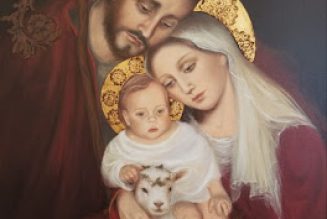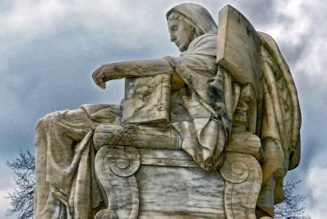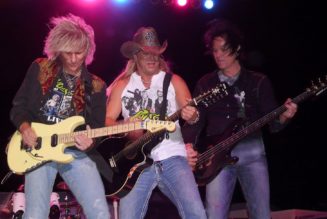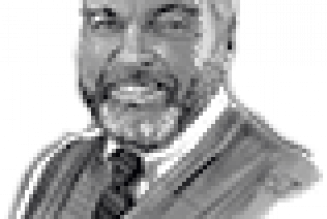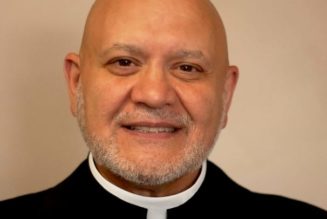
A week after the Vatican released its much-anticipated investigation of former cardinal Theodore McCarrick, there remain many unanswered questions. Whether journalists will delve deeply into these unanswered questions remains to be seen.
The point of any report, after all, is to uncover the culprits and hopefully detail how sins and crimes of this nature can be prevented in the future. For the Vatican, the report’s release appears to mean “case closed” on the decades-long history of sexual misconduct of McCarrick.
But is it?
Not at all. If anything, the open questions are great leads for journalists who may be interested in pursuing this story further. Depending on which publications one gets their news from these days, the two biggest takeaways were divergent.
If you read secular mainstream media, like The New York Times, Associated Press and USA Today, and Catholic media on the doctrinal left, then the fault was primarily with former Pope John Paul II, now a saint, accused of ignoring abuse allegations in the 1980s and promoting McCarrick to archbishop (and eventually cardinal) of Washington, D.C. That would pave the way for the man known as “Uncle Ted” to ascend up the Vatican hierarchy and become one of the most powerful cardinals on both sides of the Atlantic. Also, these reports tended to say that McCarrick was a very effective liar who, acting alone, fooled everyone.
However, if you read Catholic publications on the doctrinal right, the takeaway was that the report was a whitewash, aimed at protecting Vatican higher-ups and primarily aimed at exonerating Pope Francis from any wrongdoing. Also, it’s crucial that McCarrick was a leader who had colleagues and disciples at all levels of the church (see tmatt’s GetReligion post and podcast on ‘team Ted’).
Conservative Catholics have a point when they say there’s more missing in the report then what it actually tries to detail. It’s obvious that the report’s omissions and unanswered questions need further examination. Here are a few that stick out:
* Three New Jersey bishops, unnamed in the report, lied to protect McCarrick. Why? It’s very likely they owed their allegiance to McCarrick. What did these men know? How and why did they enable him? Why did they do so?
* McCarrick, regardless of who was pope, was a known kingmaker within the church and he said that on the record. He helped elevate lots of men within the church and even claimed he was part of efforts to elect Pope Francis. Who are those men? They are likely some of the men that surround Pope Francis and will make the decision on who will be the next pope. There was a patronage network that was run by McCarrick. No mention of that in the report.
* Is the “gay lobby” within the church — something conservatives believe has influenced the Vatican for decades — to blame for any of this? Progressives within the church will dismiss that accusation with laughter, but the report makes no mention of it.
This is where the chasm in news coverage is noticeable.
Secular news reports and progressive Catholic publications, building on the executive summary given to journalists by the Vatican press office, blame conservatives within the church — John Paul II, Pope Emeritus Benedict XVI and Archbishop Carlo Maria Vigano — for enabling McCarrick.
Journalists on the doctrinal right appear to be doing what all journalists used to do. They are questioning the official findings.
Let’s start with the media voices on the right. National Review, which is a journal that is politically and culturally conservative, ran a powerful essay by senior editor Michael Brendan Dougherty. On matters of religion, especially when it comes to Catholicism, NR follows in the tradition of their founder William F. Buckley, who was a faithful Roman Catholic.
You know where Dougherty is going with his piece since it features a subhead that calls the report a “kind of prophylactic against a real investigation.” Here’s his key takeaway in his fierce analysis:
The Vatican’s secretary of state has issued a McCarrick Report that is overflowing with passive-voiced, bureaucratic ass-covering of a vintage so old and sour it would cause the Borgias and the Chinese Communist Party to pucker up. Ultimately it blames a handful of bums in New Jersey, mostly deceased, and it half-blames, and half-exculpates, the deceased and sainted Pope John Paul II. It also lashes out at the Vatican’s former ambassador to the United States, Archbishop Carlo Maria Vigano, who has for the past several years played the role of whistleblower and slightly unhinged political mystic. The ultimate conclusion is that McCarrick was just such a convincing liar, and sure he was throwing cash around everywhere, but it wasn’t a big deal, no siree.
Dougherty goes on:
The scope of the report is rather small and can be reduced to answering three questions: (1) Why did John Paul II make McCarrick an archbishop when Cardinal John O’Connor of New York had warned the pope against this in a letter asserting that McCarrick was a sex abuser? And why did he keep rising? (2) What exactly did Benedict XVI do about McCarrick? (3) Did Francis know?
All three are aimed at countering, explaining away, or drowning in context existing stories in the media that are inconvenient to the current pope. Namely, that there were not just rumors but documented warnings to John Paul II that he ultimately ignored. That Pope Benedict did seem to usher McCarrick into retirement and was reported to have put some kind of restrictions — often ignored — on his public life in retirement. And third, that Pope Francis was told about McCarrick’s ongoing moral crimes by the Vatican’s ambassador to the U.S., and he ignored these. Conspicuously unaddressed is the accusation that McCarrick had, under Pope Francis, regained influence in the selection of bishops, namely Cardinal Kevin Joseph Farrell and Bishop Robert McElroy of San Diego.
Phil Lawlor, the editor of Catholic World News, called the report “a clever bid to deflect attention away from the real scandal.”
Once again, the emphasis is on the culture and networks surrounding McCarrick.
The 450-page report fails to explain how Theodore McCarrick rose to prominence, influenced Vatican policies and appointments, and remained influential even after his sexual misconduct was recognized by reluctant Vatican officials. Instead it relates what informed observers already knew, adding enough salacious detail to distract those who are new to the story. The Report gives reporters an opportunity to blame two former Pontiffs for excusing McCarrick’s transgressions, brushing away comparable charges against Pope Francis. And it saves its harshest criticism for the whistle-blower whose revelations forced the Vatican to give a public accounting for this scandal.
Lawlor, who said he read the whole report, for the most part exonerates John Paul II for a myriad of reasons he lays out here (in a passage that is long, but crucial):
We already knew that Pope John Paul II, who had seen how Communist propagandists sought to discredit Catholic leaders with false rumors, was inclined to skepticism about hearsay reports of clerical misconduct. We also know that his information was often filtered by his secretary, now Cardinal Stanislaw Dziwicz, who was friendly with both McCarrick and, in an earlier unfortunate situation, Father Marcial Maciel. We do not know exactly how much the beloved Polish Pontiff knew, but we do know that no direct evidence was presented to him. He can be criticized for failing to see the warning signs—and particularly for appointing McCarrick as Archbishop of Washington over objections from reliable prelates like Cardinal John O’Connor of New York. But again, that criticism is not new; these facts were well known before the two-year investigation that begot the McCarrick Report.
As for Pope Benedict XVI, he can certainly be criticized for failing to follow up on his directive that McCarrick should retire from public life. That failure, too, was well known two years ago. But it was Benedict who demanded McCarrick’s resignation as Archbishop of Washington, when the evidence of his misconduct became overwhelming.
At the same time, the Report skips quickly past the testimony of Cardinal Angelo Becciu, who recalled speaking to Pope Francis twice about the complaints against McCarrick. Again we do not know exactly what Becciu told the Pope, but the Report’s attempt to clear Pope Francis entirely again sounds lawyerly: “Until 2017, no one—including Cardinal Parolin, Cardinal Ouellet, Archbishop Becciu or Archbishop Vigano—provided Pope Francis with any documentation regarding allegations against McCarrick …”
The other big idea included in coverage by conservative Catholic news sites is the report’s ability to exonerate Pope Francis while blaming Vigano, who considers himself a whistleblower who was not even interviewed for the report.
Vigano, not shy about speaking to press friendly to him, spoke exclusively with EWTN soon after the report’s release. The report ran in the National Catholic Register and Catholic News Agency, both of which are owned by EWTN.
Here is the start of a Q&A posted on the National Catholic Register website, featuring Vigano impugning the report.
Raymond Arroyo: Here to respond to the report, we’re pleased to be joined by Archbishop Carlo Maria Viganò, who joins us via phone. Your Excellency, thank you for being here. The report claims you did not come forward. That’s the quote to present evidence for this Vatican inquiry. Were you asked to provide information for this McCarrick report? Did anyone reach out to you?
Archbishop Viganò: I am surprised to discover that a report in which I am mentioned 306 times accuses me of not having presented myself to testify in this Vatican inquiry of Theodore McCarrick. But according to the norm of the canon law, the calling of witnesses is the responsibility of the one who is in charge of the process.
Raymond Arroyo: So, Archbishop, they never reached out to you then to ask you to contribute to the report, to interview you?
Archbishop Viganò: Yes, it is completely incomprehensible and anomalous that it was not considered opportune to call upon me to testify, but even more disturbing that this deliberate omission was then used against me. Let it not be said to me that I have made myself untouchable, because the secretary of state has my personal email address, which is still alive and never has been changed.
Furthermore, it is also significant to me that James Grein — the only victim of McCarrick’s sexual molestation who had the courage to denounce him publicly — does not appear in the report and that there is no trace of his testimony, in which he would also have reported the trip he made with McCarrick to St. Gallen at the end of the 1950s.
On the doctrinal left, the coverage resembled that of the mainstream secular press. The headlines there largely blamed John Paul II.
<div class="sqs-block embed-block sqs-block-embed" data-block-json="{"cache_age":"3153600000","authorUrl":"https://twitter.com/JamesMartinSJ","width":550,"height":null,"hSize":null,"resolveObject":"Tweet","html":"
\"The former pope was fast-tracked for canonization immediately after his death. But a tarnished legacy in dealing with the church\u2019s sex abuse scandals has left critics to wonder whether it was too fast.\"
https://t.co/YtN1pofFLV\u2014 James Martin, SJ (@JamesMartinSJ) November 14, 2020
\n","url":"https://twitter.com/JamesMartinSJ/status/1327639998292779013?s=20","resolvedBy":"twitter","floatDir":null,"authorName":"James Martin, SJ","version":"1.0","resolved":true,"type":"rich","providerName":"Twitter","providerUrl":"https://twitter.com"}” data-block-type=”22″ id=”block-yui_3_17_2_1_1605620698204_74450″>
“The former pope was fast-tracked for canonization immediately after his death. But a tarnished legacy in dealing with the church’s sex abuse scandals has left critics to wonder whether it was too fast.”
https://t.co/YtN1pofFLV— James Martin, SJ (@JamesMartinSJ) November 14, 2020
America magazine, a progressive Jesuit publication friendly to Pope Francis, it’s clear that John Paul II and Vigano are to blame. America published two pieces in particular that made those points — one on John Paul II’s “tarnished legacy” and another backing the report’s treatment of Francis.
Instead of mainstream news sources quoting Vigano (or even attempting to interview him), The New York Times picked up on the theme that JPII may have been “sainted too soon.” That news story was quick to quote experts who supported that idea.
Over at the National Catholic Reporter, the news story on the report also featured the words “blame” and John Paul in the headline. Here is the key paragraph:
The executive summary of the expansive 450-page text suggests that John Paul may have been blinded by his own prior friendship with McCarrick in the 1970s, and by his experience in communist Poland, where authorities would sometimes level false accusations against bishops in order to try and damage the church’s reputation.
Yes, there’s another reference to the executive summary. Clearly, most reporters did not read the full report. The executive summary — highlighting what the Vatican wanted to see in early news reports, thus driving the coverage — is also an issue.
Catholic News Service even did a separate story on what Vigano did and didn’t do. It is a summary, in news story form, of the report as it pertains to Vigano and features no interview with the archbishop. This is how the story concludes:
Most notably, the report states that Pope Francis was questioned regarding Archbishop Vigano’s statement that he informed the pope about the accusations against McCarrick in June 2013.
“Pope Francis did not recollect what (Archbishop) Vigano said about McCarrick during these two meetings,” the report stated. “However, because McCarrick was a cardinal known personally to him, Pope Francis was certain that he would have remembered had Vigano spoken about McCarrick with any ‘force or clarity.’”
The pope was also certain that the former nuncio “never told him that McCarrick had committed ‘crimes’ against any person, whether adult or minor, or described McCarrick as a ‘serial predator,’ or stated that McCarrick had “corrupted generations of seminarians and priests,” the report added.
Furthermore, the Vatican said several witnesses, including a priest “who knew Vigano well,” recalled that Archbishop Vigano “expressed satisfaction” with Pope Francis’ election, believing that he would address the need for economic reform.
“The priest stated that ‘the way Archbishop Vigano spoke so enthusiastically of the pope it sounded like he considered him an ally, so much so that it left me with the impression that he was going to be called back to Rome to help with the reforms,’” the report said.
One thing is clear: There is plenty of blame to go around.
The report’s biggest failing may be its emphasis on institutional failures (as I pointed out in my news piece over at Religion Unplugged) within the Vatican bureaucracy. There was no smoking gun here — other than the Vatican wanting to exonerate Francis and the men currently in charge in Rome. Instead, it found it easy to go back in time and outline a systemic failure that started with John Paul II.
There are, most notably, lots of contradictions in this report. Time will tell if journalists, mainstream or religious, will follow-up on any of these unanswered storylines.
Join Our Telegram Group : Salvation & Prosperity
